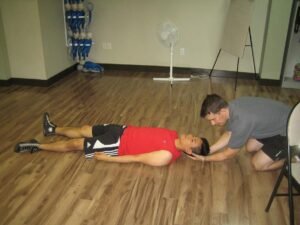Hypoglycemia or low blood sugar is considered as a common emergency condition that affects individuals who have diabetes. If this condition is simply ignored or left untreated, it can lead to seizures, coma or even death in worst cases. The treatment for hypoglycemia involves eating any type of simple carbohydrate in order to abruptly increase the depleted blood sugar levels.
Symptoms of hypoglycemia
The symptoms of this condition typically follow a common pattern that individuals suffering from diabetes can easily recognize. The early symptoms include:

• Hunger
• Muscle tremor or shaking
• Nausea
Once hypoglycemia progresses and the blood sugar level drops, the symptoms can get more severe. In case the individual manifests any of these symptoms, call for emergency assistance right away.
- Confusion
- Dizziness
- Weakness
- Seizures
- Loss of muscular control
- Coma
Causes of hypoglycemia
Always remember the hypoglycemia is quite common among individuals who have diabetes and currently taking medications. The intake of too much medications and not eating properly can lead to hypoglycemia. If glucose is released into the bloodstream at a very slow rate, it can lead to hypoglycemia. On the other hand, the condition is also triggered if too much insulin is released into the bloodstream.
Nevertheless, the condition can also occur in individuals who have no history of diabetes and manifest the same symptoms. Additionally, it can also occur as a result of increased exertion or infection. Hypoglycemia can also be triggered in individuals who do not have diabetes. These are cause by consumption of alcohol, deficiency or lack of a hormone such as thyroid or cortisol, undergoing certain types of weight-loss surgery and severe liver, heart or kidney failure.
First aid for hypoglycemia
1. Safety must always be the priority and you have to observe the basics of first aid. In case you feel that the area is not safe, you have to call for help. Always follow the universal precautions and utilize protective gear if available.
2. In case the individual is conscious and could follow your instructions, provide something to eat or drink that is sweet. Glucose gel products will surely come in handy if they are available. You can also provide a frozen juice concentrate to the individual.
3. If the individual is unconscious, you have to place him/her in the recovery position and call for emergency assistance right away.
4. While waiting for the medical team to arrive, you have to monitor the individual.
When to call for emergency assistance
It is best to call for emergency assistance for individuals who have diabetes if he/she is unconscious and could not be awaken and if his/her alertness level is diminishing.
Always remember that severe cases of hypoglycemia are already considered as a medical emergency that can lead to seizures and permanent damage to the brain. Severe hypoglycemia in which the individual becomes unconscious is also known as insulin shock.
